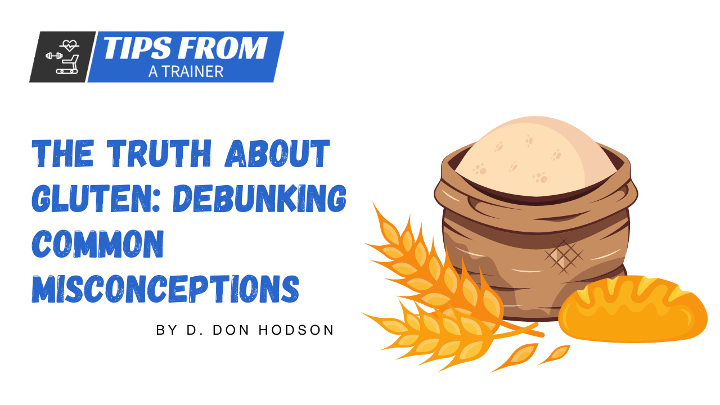Introduction
Gluten has become a topic of discussion and debate in the world of nutrition, leading to various misconceptions about its effects on health.
In this article, we aim to shed light on the truth about gluten and debunk some of the common myths surrounding it. By understanding the facts, you can make informed decisions about including or avoiding gluten in your diet.
Table of Contents
Introduction
Understanding Gluten
Gluten Intolerance and Celiac Disease
Debunking Gluten Myths
Who Should Avoid Gluten?
Conclusion

Understanding Gluten
Gluten, a protein found in wheat, barley, and rye, plays a crucial role in the structure and texture of many staple foods. It provides elasticity to dough and contributes to the rise of baked goods. Gluten is prevalent in various food products, including bread, pasta, cereals, and processed snacks.
Gluten Intolerance and Celiac Disease
Celiac disease, an autoimmune disorder, is the most severe form of gluten intolerance. It affects approximately 1% of the population and is triggered by the consumption of gluten. Individuals with celiac disease experience an immune response that damages the small intestine, leading to various symptoms and nutrient malabsorption.
Non-celiac gluten sensitivity, on the other hand, is a condition where individuals experience similar symptoms to those with celiac disease but without the characteristic intestinal damage. While the exact prevalence is uncertain, it is believed to affect a larger percentage of the population than celiac disease.
Debunking Gluten Myths
Myth 1: Gluten is universally harmful to health.
Separating fact from fiction:
Gluten itself is not harmful unless you have celiac disease or non-celiac gluten sensitivity.
Nutritional benefits of gluten-containing foods:
Whole grains containing gluten provide essential nutrients, fiber, and energy.
Myth 2: Gluten causes weight gain
Understanding the truth:
Gluten alone does not directly cause weight gain; it's the overall calorie intake and food choices that contribute to weight management.
Balanced gluten-inclusive diets:
A well-balanced diet that includes gluten-containing foods can be part of a healthy weight management plan.
Myth 3: Gluten-free products are healthier for everyone.
Clarifying misconceptions:
Gluten-free products are necessary for those with gluten-related conditions but may not necessarily be healthier for the general population.
Nutritional considerations:
Gluten-free alternatives often require additional fats, sugars, and additives to compensate for texture and taste.
Who Should Avoid Gluten?
Individuals with celiac disease:
Those diagnosed with celiac disease must strictly avoid gluten to prevent symptoms and long-term complications.
Non-celiac gluten sensitivity:
Some individuals experience gastrointestinal symptoms when consuming gluten and may choose to limit their intake
Conclusion
Understanding the truth about gluten is essential for making informed decisions about your diet. While gluten can be harmful to individuals with specific conditions, it is not inherently unhealthy for everyone.
It's important to listen to your body and, if necessary, consult with a healthcare professional or registered dietitian to determine the best approach for your individual needs.

Don Hodson, Certified Personal Trainer
I'm Don, an ACE-certified personal trainer and the founder of Tips From A Trainer. With my passion for fitness and years of experience, I've helped countless individuals transform their physiques!
Having personally overcome weight challenges throughout my life, I understand the struggle. Through consistency, exercise, and a balanced diet, I have managed to stay in shape and I want to share my message with the world!
The fitness industry is fraught with misconceptions and deceptive practices, which is why I am committed to providing you with the truth.
- My Site: www.Don-Hodson.com
- My Company: www.ConnectedAgeMarketing.com

The Truth About Gluten